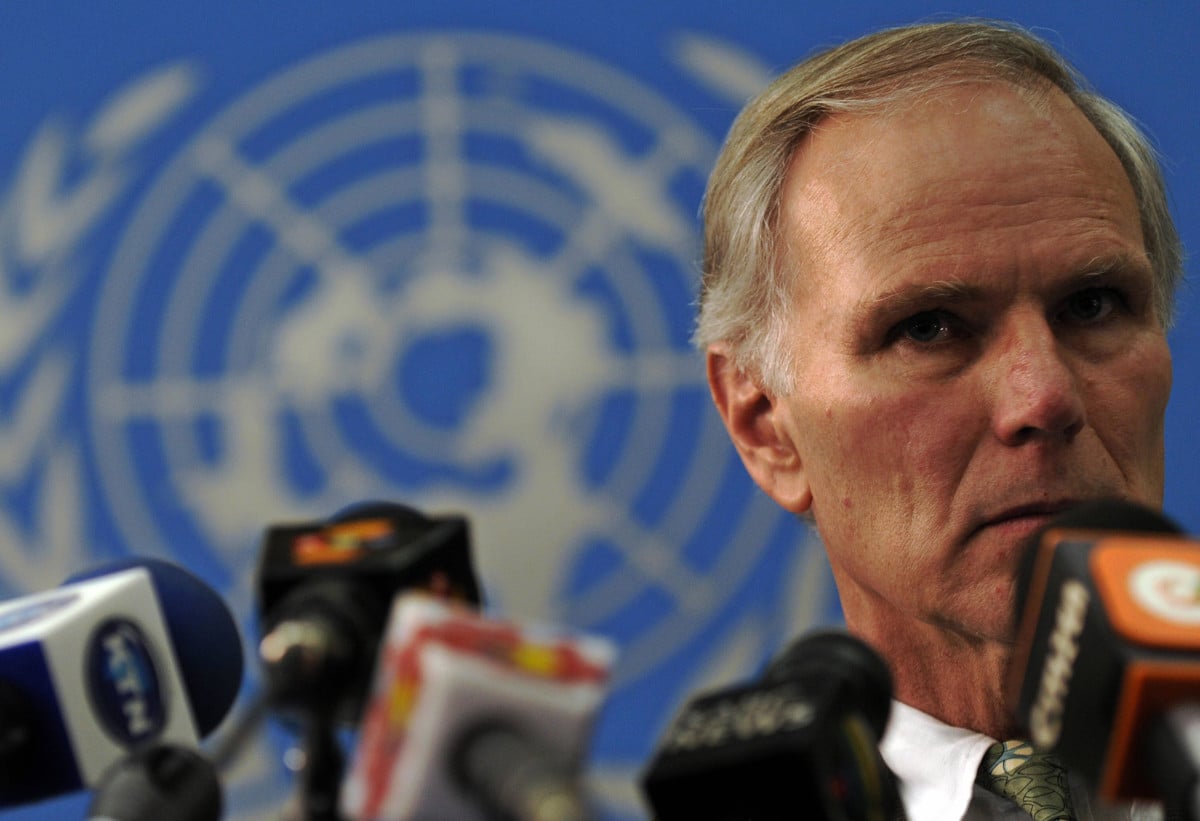Truthout is a vital news source and a living history of political struggle. If you think our work is valuable, support us with a donation of any size.
The United Nations has released a scathing report on poverty and inequality in the United States. The findings, which will be presented to the UN Human Rights Council on June 21, follow an official visit to the United States by Philip Alston, the UN special rapporteur on extreme poverty and human rights, to investigate whether economic insecurity in the country undermines human rights.
The conclusions are damning. “The United States already leads the developed world in income and wealth inequality, and it is now moving full steam ahead to make itself even more unequal,” the report concludes. “High child and youth poverty rates perpetuate the intergenerational transmission of poverty very effectively, and ensure that the American dream is rapidly becoming the American illusion.”
The UN explicitly lays blame with the Trump administration for policies that actively increase poverty and inequality in the country. “The $1.5 trillion in tax cuts in December 2017 overwhelmingly benefited the wealthy and worsened inequality. The consequences of neglecting poverty and promoting inequality are clear,” it concludes. “The policies pursued over the past year seem deliberately designed to remove basic protections from the poorest, punish those who are not in employment and make even basic health care into a privilege to be earned rather than a right of citizenship.”
In December, Alston visited seven locations throughout the country—ranging from Los Angeles’s Skid Row neighborhood to rural Alabama, West Virginia, and Puerto Rico—to meet with people experiencing deep poverty, along with experts and civil society groups.
In an interview with TalkPoverty ahead of the release, Alston characterized the United States as an outlier among the developed world.
“If you said to most Americans, ‘Look at what country X does to its ethnic minority or to a particular religious minority’ … your average American with any knowledge of that situation is going to shake her head and say, ‘This is a disgrace,’” Alston said. “But of course there’s a direct parallel in the United States and it affects not just a small ethnic minority but a very large racial group of African Americans in particular, where they just come out worse on every possible indicator and policies are clearly designed to hit them harder.”
Alston described meeting “people who had lost all of their teeth because adult dental care is not covered by the vast majority of programs available to the very poor,” and people in Puerto Rico “living next to a mountain of completely unprotected coal ash, which rains down upon them bringing illness, disability, and death.” In Lowndes County, Alabama, the UN found cesspools of sewage that flowed out of dysfunctional (or nonexistent) septic systems, which has led to a resurgence in diseases that officials believed were eradicated. A recent study found that more than one-third of people surveyed in Alabama tested positive for hookworm—a parasite that thrives in areas of poor sanitation, which has not been well-documented in the United States since the 1950s.
The reactions to the visit from the Trump administration and Republicans in Congress ahead of the report have ranged from indifference to hostility. Alston requested meetings with House Speaker Paul Ryan and a range of Republican committee chairs—all of whom declined the request. Senators Cory Booker, Bernie Sanders, Rep. Terri Sewell, and Elizabeth Warren’s staff, on the other hand, all met with Alston. Alston also got a mixed result from the Trump administration. While some agencies were cooperative, “the Justice Department … basically refused all requests to meet and that was pretty striking. It’s not the sort of thing that normally happens on a mission like this,” Alston says.
The Human Rights Council oversees human rights protection around the world. Though the United States is an elected member of the council, it doesn’t have the friendliest relationship with the body. President George W. Bush boycotted the council at its founding in 2006 (a decision the Obama administration later reversed), and UN Ambassador Nikki Haley has been a relentless critic of the council under Trump. Notably, the United States and Cuba are the only countries in North America not to offer standing invitations from the Human Rights Council.
As for the odds that the report will force the administration to change course, Alston was not hopeful. During the visit, “The U.S. was visibly debating what to do with $1.5 trillion [in tax cuts]. And its proposals in relation to those living in poverty was essentially to cut back on existing benefits in order to help fund the tax reforms. That made for a pretty dramatic contrast for the approach that I have found elsewhere.”
A terrifying moment. We appeal for your support.
In the last weeks, we have witnessed an authoritarian assault on communities in Minnesota and across the nation.
The need for truthful, grassroots reporting is urgent at this cataclysmic historical moment. Yet, Trump-aligned billionaires and other allies have taken over many legacy media outlets — the culmination of a decades-long campaign to place control of the narrative into the hands of the political right.
We refuse to let Trump’s blatant propaganda machine go unchecked. Untethered to corporate ownership or advertisers, Truthout remains fearless in our reporting and our determination to use journalism as a tool for justice.
But we need your help just to fund our basic expenses. Over 80 percent of Truthout’s funding comes from small individual donations from our community of readers, and over a third of our total budget is supported by recurring monthly donors.
Truthout has launched a fundraiser to add 379 new monthly donors in the next 6 days. Whether you can make a small monthly donation or a larger one-time gift, Truthout only works with your support.
